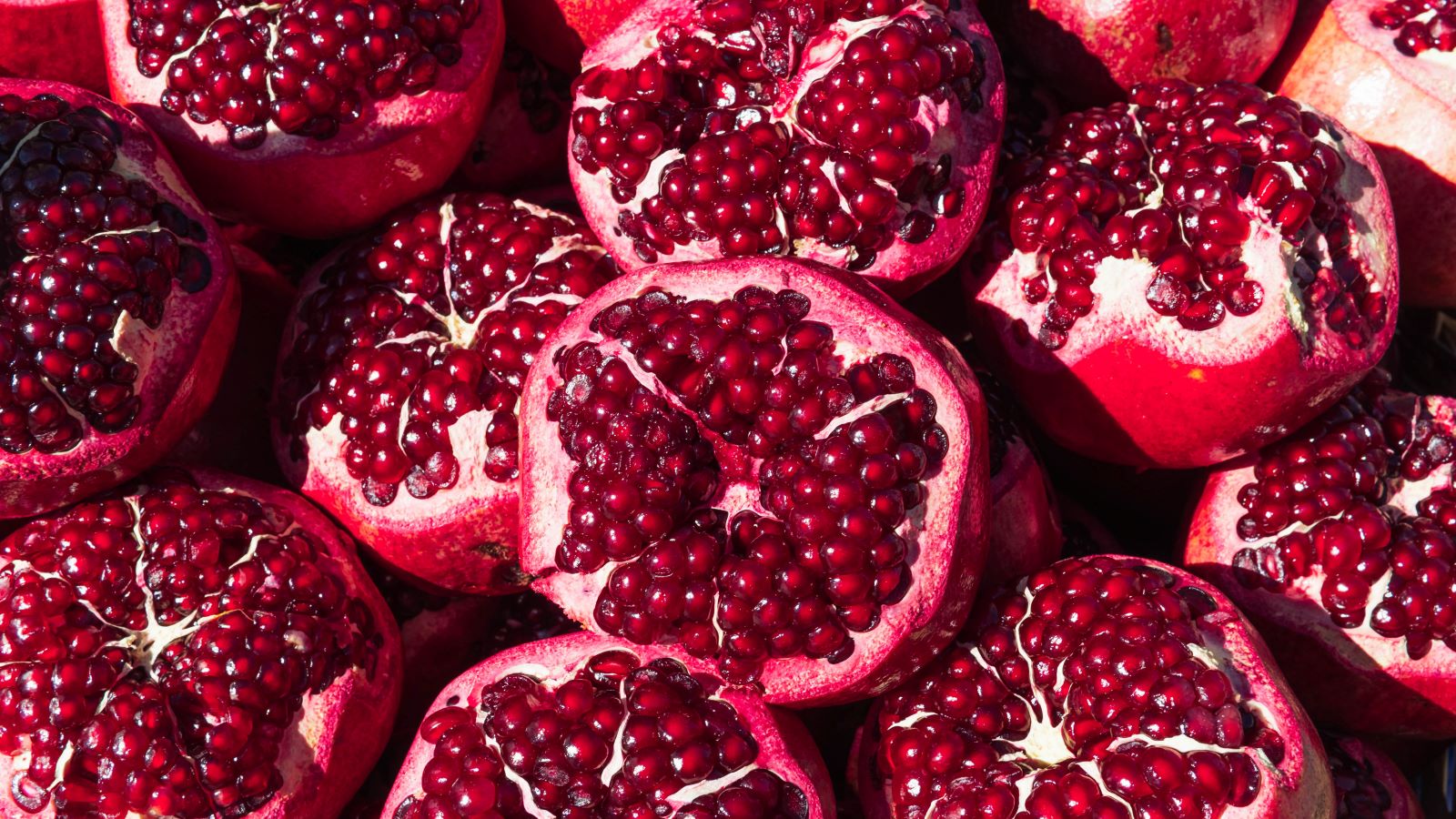<< Back
5 Reasons to Eat More Pomegranate

July 07, 2025
Let’s be honest — pomegranates are kind of a pain. They’re hard to peel, messy and can be a bit expensive. But they might just be worth all the effort.
“Pomegranate is one of those fruits that does a lot of good for your body — heart, skin, and digestion, to name just a few,” says Shannon Haynes, RD, a registered dietitian with Hartford HealthCare at Backus Hospital. “It’s packed with antioxidants, vitamins and fiber. And it tastes really good, too.”
So if you’ve been walking past it at the store or skipping over the pomegranate juice aisle, it might be time to give it another look. Here’s why.
1. It’s packed with nutrients.
One cup of pomegranate seeds gives you a solid dose of vitamin C — about 20% of your daily needs — plus potassium, vitamin K, folate and some fiber, too.
But the real magic is in the antioxidants.
“Pomegranate is loaded with plant compounds that help protect your cells from damage and reduce inflammation. Chronic inflammation can lead to all kinds of issues, ranging from joint pain to heart problems, but antioxidants can help.”
And those same antioxidants also help protect your skin from damage.
2. Your heart loves it.
Studies suggest that pomegranate may help lower blood pressure, reduce inflammation in your arteries, and improve cholesterol levels. In other words, it’s doing some heavy lifting for your heart.
“Adding pomegranate to your diet a few times a week is a great way to support heart health,” says Haynes. “You’re giving your heart extra tools to stay healthy.”
> Related: 8 Heart-Healthy Snacks to Keep You Going
3. Pomegranate helps your immune system, too.
Pomegranate’s vitamin C content isn’t just good for your skin — it’s also great for your immune system, especially during cold and flu season.
“Whole foods with vitamin C help your immune cells work better and recover faster when you’re sick,” says Haynes.
So if you’re feeling run down, pomegranate might help perk you back up.
4. It may give your memory a boost.
An added bonus — pomegranate might be brain food, too.
“Thanks to those antioxidants, pomegranate may help protect brain cells and reduce the risk of memory loss over time,” says Haynes.
Some studies even suggest it could play a role in reducing the risk of Alzheimer’s disease.
> Related: 9 Foods That Can Actually Boost Your Mood
5. It can support endurance.
Need more energy to power through your day — or your workout? Pomegranate can help.
“The antioxidants in pomegranates help reduce oxidative stress and inflammation — both of which can affect endurance and performance,” Haynes notes.
Whether you’re dealing with lung issues or just want to feel your best, pomegranate can give your body an extra edge.
4 simple ways to get more pomegranate in your diet.
Yes, pomegranates can be a little high-maintenance. But once you get the hang of opening them, they’re not so bad.
Here are a few ways to enjoy them:
- Sprinkle the seeds on salads or yogurt
- Add them to oatmeal or a smoothie
- Stir them into couscous or grain bowls
- Drink a splash of pomegranate juice mixed with seltzer
“If you opt for pomegranate juice, just be sure it’s 100% pomegranate with no added sugar,” Haynes cautions. “And be sure to drink it in moderation, because it still contains natural sugar.”
So next time you spot one at the store, don’t pass the pomegranate by. Your heart, your brain, and your taste buds will thank you.